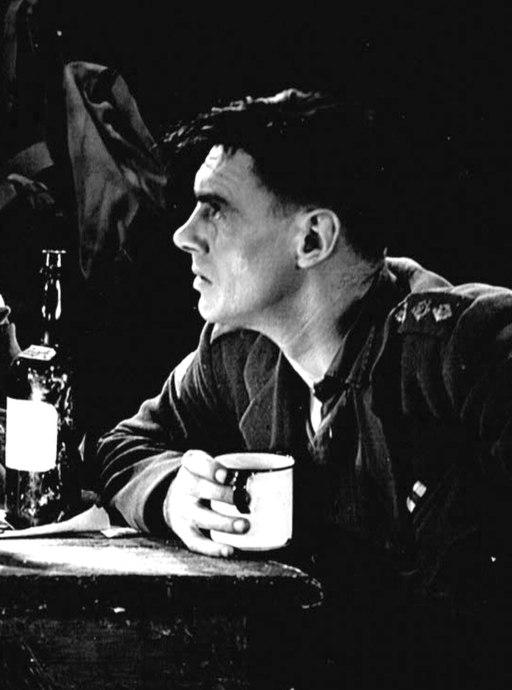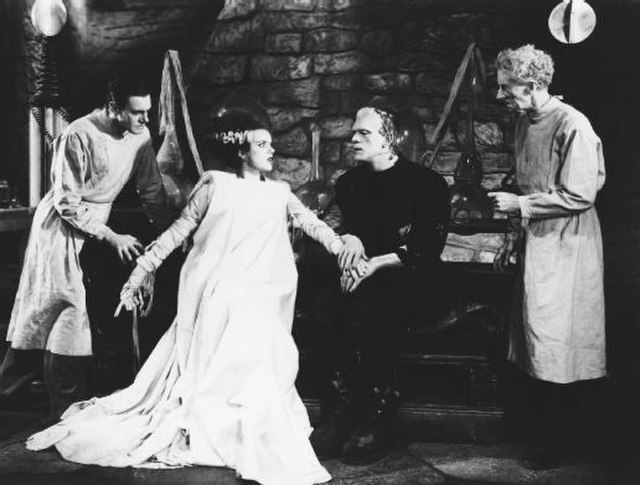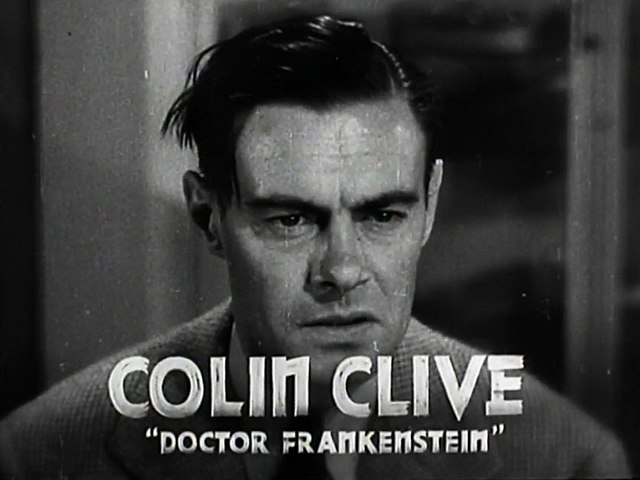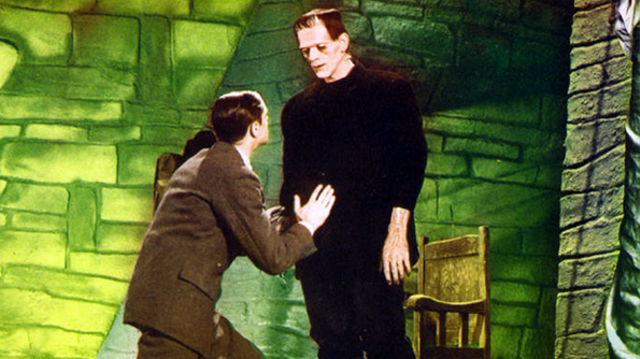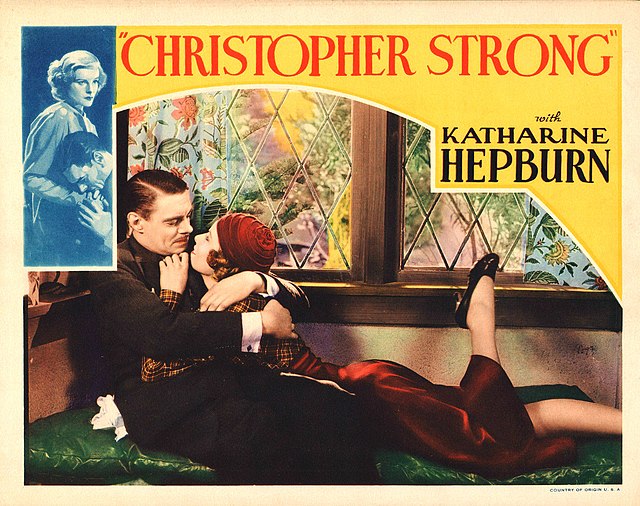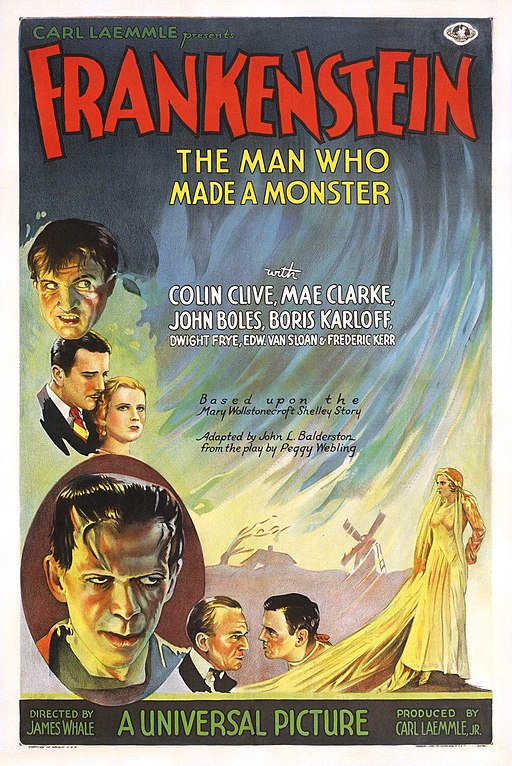Colin Clive
back| Full Name | Colin Glenn Clive-Greig |
| Stage Name | Colin Clive |
| Born | January 20, 1900 |
| Birthplace | Saint-Malo, Ille-et-Vilaine, France |
| Died | June 25, 1937 |
| Buried | Forest Lawn Memorial Park, Glendale, California, USA |
| Married to | Jeanne de Casalis (m. 1929) |
| Children | None |
| Notable films | Journey's End (1930) - Frankenstein (1931) - The Bride of Frankenstein (1935) - Mad Love (1935) - History Is MAde at Night (1937) |
Colin Clive
The Tragic Gentleman of Horror
Colin Clive (1900-1937) was a British actor renowned for his intense performances, particularly as Dr. Henry Frankenstein in "Frankenstein" (1931) and "The Bride of Frankenstein" (1935).
Born in Saint-Malo, France, Clive began his career on the London stage, gaining acclaim for his role in "Journey's End" (1928). Transitioning to film, his portrayal of Dr. Frankenstein set a new standard for horror cinema. Despite his success, Clive struggled with alcoholism and personal demons, which ultimately led to his early death from tuberculosis at age 37.
Related
Colin Clive (1900 – 1937)
Biography, Career Overview and Movies:
Colin Clive was a distinguished British actor known for his powerful performances and his portrayal of Dr. Henry Frankenstein in the classic horror films "Frankenstein" (1931) and "The Bride of Frankenstein" (1935).
Early Life and Education
Colin Clive was born Colin Glenn Clive-Greig on January 20, 1900, in Saint-Malo, Ille-et-Vilaine, France. He was the son of a British Army officer and spent much of his early life moving between various postings. He attended Stonyhurst College in Lancashire, England, and later the Royal Military Academy Sandhurst, where he trained for a military career. However, an injury forced him to abandon this path, leading him to pursue acting.
Career Beginnings
Clive made his stage debut in 1919, and by the mid-1920s, he had become a prominent figure in the London theatre scene. His breakthrough role came in 1928 when he starred as Captain Stanhope in R.C. Sherriff's play "Journey's End," a role that brought him critical acclaim and led to his transition to film.
Film Career
Colin Clive's film debut was the 1930 adaptation of "Journey's End," directed by James Whale. Whale would later direct Clive in the role that would define his career: Dr. Henry Frankenstein in "Frankenstein" (1931). Clive's intense and memorable performance as the obsessed scientist was a key factor in the film's success and helped establish it as a cornerstone of the horror genre.
He reprised his role in the equally acclaimed sequel, "The Bride of Frankenstein" (1935), further cementing his legacy in cinema. Despite these successes, Clive's career was marked by a mix of significant roles and lesser-known films. Some of his other notable works include "Mad Love" (1935) and "History Is Made at Night" (1937).
Personal Life
In 1929, Colin Clive married actress Jeanne de Casalis. The couple did not have any children. Clive struggled with alcoholism, a factor that affected both his career and his health. His battle with alcohol contributed to his untimely death at the age of 37.
Death
Colin Clive died on June 25, 1937, from complications of tuberculosis exacerbated by his alcoholism. He was buried at Forest Lawn Memorial Park in Glendale, California.
Legacy
Colin Clive's portrayal of Dr. Frankenstein remains one of the most iconic in film history. His ability to convey the tormented and obsessive nature of his characters left a lasting impact on the horror genre and on cinema as a whole. Despite his relatively short career, Clive's contributions to film have ensured his place in the annals of movie history.
Clive's work continues to be celebrated by classic film enthusiasts and horror fans, and his performances in "Frankenstein" and "The Bride of Frankenstein" are frequently cited as benchmarks of early horror cinema.
"It's Alive" scene from Frankenstein:
Analysis of Colin Clive’s Acting Style:
Colin Clive brought a profound intensity to his roles, particularly evident in his portrayal of Dr. Henry Frankenstein. His ability to convey passion and obsession was unparalleled, often creating a palpable tension on screen. This intensity was not just in his voice but in his entire physical presence – his eyes, his gestures, and even his posture conveyed a man deeply consumed by his pursuits or tormented by his inner demons.
Emotional Depth and Vulnerability
One of Clive’s greatest strengths as an actor was his capacity to evoke deep emotions. He could move seamlessly from confident assertiveness to moments of profound vulnerability, making his characters complex and multi-dimensional. In "Frankenstein," for instance, he masterfully depicted Dr. Frankenstein’s descent from ambitious scientist to a man horrified by his own creation. This emotional range allowed audiences to connect with his characters on a deeper level, feeling their triumphs and despairs intimately.
Nuanced Expressions
Clive was adept at using subtle facial expressions to convey a wide array of emotions. His expressive eyes were particularly notable, often revealing more than his words. Whether it was fear, madness, or love, Clive’s nuanced expressions provided a window into his characters' souls, adding layers to his performances that kept audiences captivated.
Commanding Voice
Clive’s voice was another powerful tool in his acting arsenal. His clear, authoritative delivery could command attention, while his softer, more introspective moments could convey vulnerability and doubt. This vocal versatility enabled him to portray characters with a dynamic range of emotions and motivations, from the commanding presence of Dr. Frankenstein to the tortured soul of Stephen Orlac in "Mad Love."
Physicality and Presence
Physically, Clive had a tall and somewhat imposing presence, which he used effectively to dominate scenes when needed. His body language was precise and deliberate, enhancing his verbal expressions and adding a physical dimension to his characters’ psychological states. Whether standing tall with determination or crumpling in despair, Clive’s physicality was always in service of his character’s inner life.
Relatability and Humanity
Despite often playing larger-than-life characters, Clive managed to imbue them with a relatability and humanity that resonated with audiences. His characters were often flawed and struggling, reflecting the complexities of real human experiences. This authenticity made his performances not only compelling but also profoundly moving.
Legacy and Influence
Colin Clive’s acting style has left a lasting impact on the world of cinema, particularly in the horror genre. His portrayal of Dr. Frankenstein set a standard for the depiction of tormented geniuses in film. His ability to combine intensity with vulnerability has influenced countless actors who seek to create multi-dimensional, emotionally rich characters.
Recognition for Colin Clive:
Colin Clive did not receive any major awards or nominations during his career. Despite his impactful performances, particularly as Dr. Henry Frankenstein in the iconic films "Frankenstein" (1931) and "The Bride of Frankenstein" (1935), his career was tragically cut short by his untimely death in 1937, before many of the contemporary film award systems were established.
Clive's contributions to cinema, especially in the horror genre, are recognized more through critical acclaim and enduring legacy rather than formal accolades. His portrayal of Dr. Frankenstein remains a seminal performance, often celebrated by film historians and horror aficionados. Clive's work is frequently discussed in retrospectives and analyses of classic horror cinema, underscoring his significant impact on the genre.
Notable Film Lines from Colin Clive:
· "It's alive! It's alive!"
This iconic line is shouted by Clive's character, Dr. Henry Frankenstein, as he brings his creature to life. The line is one of the most famous in cinematic history and captures the essence of the horror genre's fascination with life, death, and scientific hubris.
· "In the name of God! Now I know what it feels like to be God!"
Another powerful line from "Frankenstein," this quote reflects the character's realization of the magnitude of his achievement and his subsequent sense of playing with forces beyond human control. It is often cited as a pivotal moment in the film.
· "You have created a monster, and it will destroy you!"
In "The Bride of Frankenstein" (1935), Clive's character faces the consequences of his actions, and this line underscores the central theme of creator versus creation.
What Others said about Colin Clive:
· James Whale, the director who worked with Clive on "Frankenstein" and "The Bride of Frankenstein," was instrumental in recognizing Clive's talent and casting him in these iconic roles. Whale's decision to cast Clive stemmed from their successful collaboration on the stage version of "Journey's End," where Clive's portrayal of Captain Stanhope was highly acclaimed.
· Mae Clarke, Clive's co-star in "Frankenstein," was reportedly smitten with him and deeply impressed by his acting abilities. She once described him as having "the voice of a pipe organ and the face of Christ," highlighting the profound impact his presence had on those around him.
· David Manners, another of Clive's co-stars, mentioned that Clive had a "Jekyll and Hyde" aspect to him, reflecting the intense duality and emotional depth he brought to his roles. This observation underscores Clive's ability to convey a wide range of emotions and his tendency to immerse himself fully in his characters.
Movies featuring Colin Clive:
1930
Journey's End
Synopsis: Set during World War I, this film centers around a group of British officers in the trenches. Captain Stanhope, played by Colin Clive, struggles with the horrors of war and the pressures of command.
1931
Frankenstein
Synopsis: Colin Clive stars as Dr. Henry Frankenstein, a scientist who creates a living being from body parts. The creature, played by Boris Karloff, brings terror and tragedy as it grapples with its existence.
Lily Christine
Synopsis: In this British drama, Clive plays the role of Richard Loring, a man entangled in a romantic and legal battle involving a woman named Lily Christine.
1932
The Stronger Sex
Synopsis: A British drama about complex relationships and social dynamics, with Clive playing a pivotal role in the unfolding drama.
1933
Christopher Strong
Synopsis: This film focuses on a married politician who falls for a daring aviatrix, played by Katharine Hepburn. Clive portrays Sir Christopher Strong, the politician.
Looking Forward
Synopsis: Set during the Great Depression, this drama examines the struggles of a department store owner and his family. Clive plays Michael Dormer, one of the key characters.
1934
One More River
Synopsis: Based on a novel by John Galsworthy, this film tells the story of a woman escaping her abusive husband and the legal battles that follow. Clive plays David Dornford, a supportive friend.
1935
Clive of India
Synopsis: A biographical film about Robert Clive, the British officer who established British control over India. Clive plays a supporting role as Major-General Stringer Lawrence.
The Right to Live
Synopsis: This drama explores themes of euthanasia and personal choice, with Clive playing Maurice Trent, a man struggling with terminal illness.
The Bride of Frankenstein
Synopsis: In this sequel to "Frankenstein," Dr. Henry Frankenstein (Clive) is coerced into creating a mate for the creature. The film delves deeper into the themes of creation and monstrosity.
Mad Love
Synopsis: A horror film where Clive plays Stephen Orlac, a pianist whose hands are surgically replaced with those of a murderer, leading to a series of terrifying events.
1936
The Man Who Broke the Bank at Monte Carlo
Synopsis: A comedy-drama about a Russian prince who wins a fortune at the Monte Carlo casino. Clive plays Paul Lane, a key character in the plot.
The Girl from 10th Avenue
Synopsis: This romantic drama features Clive as John Marland, a wealthy lawyer who marries an ordinary girl after a drunken night, leading to complications and eventual love.
The Widow from Monte Carlo
Synopsis: A drama involving intrigue and romance set against the backdrop of high society. Clive's role is integral to the film's central mystery.
1937
History Is Made at Night
Synopsis: A romantic drama where Clive plays Bruce Vail, a wealthy and jealous shipowner whose obsession with his wife leads to dramatic consequences.
The Woman I Love
Synopsis: A World War I drama about the romantic entanglements of French pilots. Clive plays Lieutenant Claude Maury, a character whose love and bravery are central to the story.

